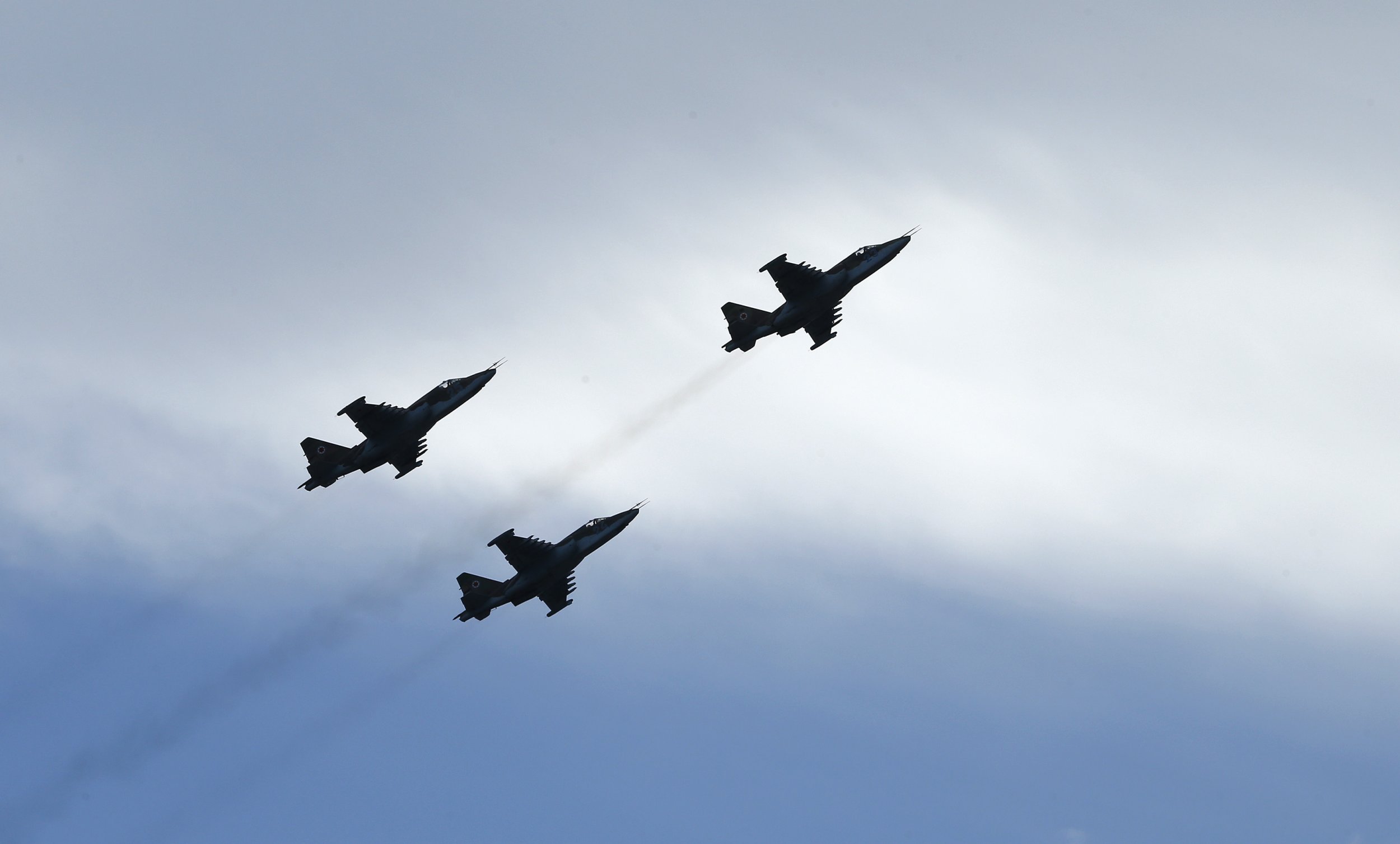
Units in Russia's air force are now operating with a Russian-developed navigation system,
an alternative to the U.S.-funded GPS. The home-grown navigation project called GLONASS was installed in SU-25 fighter jets which successfully completed a practice run over northern Kyrgyzstan today, according to a statement issued by regional command.
The GLONASS-equipped jets will be used in the rapid response unit of the air force, as Russia continues to experiment with the navigation technology it hopes will soon rival the U.S.'s GPS.
"Airmen from Russia's aviation base Kant, dispatched in Kyrgyzstan, conducted a training flight in the Edelweiss air circuit (airspace east of Bishkek)," the statement read. "They successfully utilised the GLONASS navigation system in poor visibility conditions, as well as executing low flying manoeuvres over the forest terrain."
According to the air force unit's head command, GLONASS was integrated into Russia's modernised versions of the popular SU-25 fighter jet units at the end of 2014.
The same system, nicknamed 'Rook' by Russian pilots, is also supplied to countries in Russia's security alliance such as Belarus and also North Korea.
GLONASS, which claims to be the only global navigation satellite system other than GPS, has been a focal point of Russia's Aerospace Defence Forces, since the branch's creation by the Ministry of Defence in 2011.
The GLOSNASS project is a joint venture between Russia's space exploration agency Roscosmos and the armed forces. It was spearheaded by Russian President Vladimir Putin in 2001 when he unveiled plans to revive older Soviet incarnations of a satellite navigation system dating back to the 1970s.
Although GLOSNASS has reportedly become Roscosmos's most expensive project, costing around $5 billion dollars between 2001 and 2011, and with an additional $11 billion due to be invested in the project by 2020, it has not had the success of its US counterpart.
26 GLOSNASS satellites have been produced in total with 24 of them currently in orbit, but in April last year the system experienced a power outage for half a day, leading to positions being miscalculated by more than 50km, which did little to solidify GLOSNASS's reputation as a viable alternative to GPS.
Once perfected, the Russian military hopes to use GLOSNASS in other operations, including to provide air and space surveillance, tracking missiles and to warn of approaching rockets.
Uncommon Knowledge
Newsweek is committed to challenging conventional wisdom and finding connections in the search for common ground.
Newsweek is committed to challenging conventional wisdom and finding connections in the search for common ground.
About the writer
I am a Staff Writer for Newsweek's international desk. I report on current events in Russia, the former Soviet Union ... Read more





